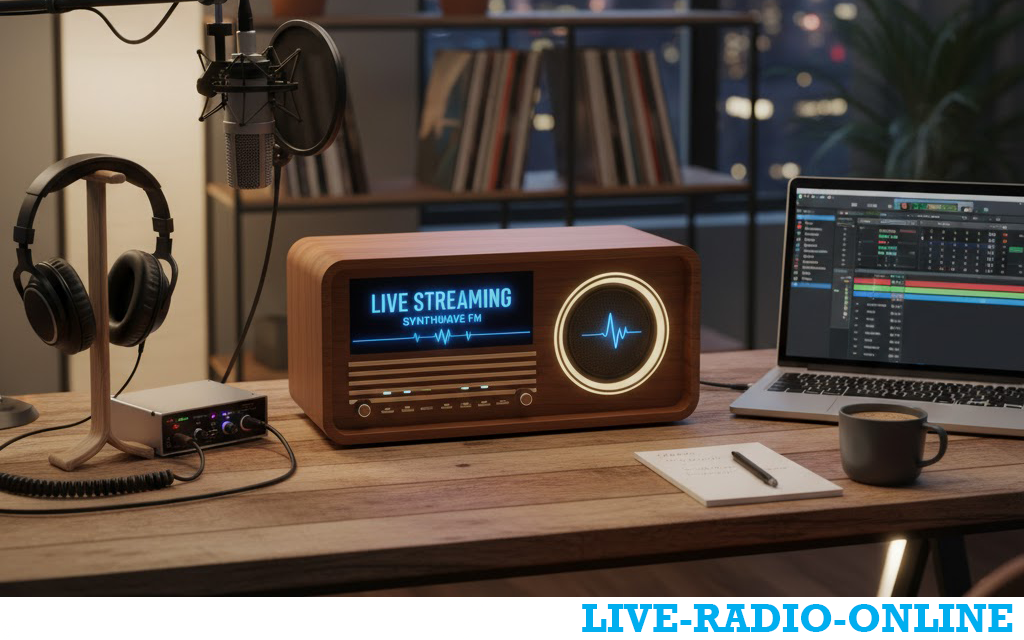
Choosing a radio streaming service provider is a critical decision that affects your station's reliability, sound quality, and growth. It's more than just finding the cheapest option; it's about finding a reliable partner.
Here’s a detailed breakdown of what to look for, categorized from most critical to important considerations.
1. Core Technical Requirements
This is the foundation. If these aren't right, nothing else matters.
-
Audio Quality and Bitrates: Don't settle for low-quality streams.
-
Multiple Bitrates: Look for a provider that offers a range of bitrates (e.g., 32 kbps for mobile data, 128 kbps for standard listening, and 192 kbps or 320 kbps for high-fidelity sound). This ensures a good listener experience regardless of their internet speed.
-
Codec Support: Modern codecs like AAC+ (Advanced Audio Coding) provide superior sound quality at lower bitrates compared to older MP3 streams. A provider offering AAC+ is often a sign of a more modern infrastructure.
-
-
Reliability and Uptime: Your station is useless if it's always down.
-
Uptime Guarantee: Look for a Service Level Agreement (SLA) that guarantees 99.9% or higher uptime. This means less than 9 hours of unplanned downtime per year.
-
Server Redundancy: Ask if they have multiple servers in different data centers. If one fails, your stream should automatically switch to another without interruption.
-
-
Scalability and Bandwidth: Can they grow with you?
-
Unlimited Listeners: Most reputable providers offer plans with unlimited listener slots. Avoid providers that cap your potential audience.
-
Global Content Delivery Network (CDN): A CDN ensures your stream is delivered from a server geographically close to your listener, reducing buffering and lag. This is essential if you have an international audience.
-
2. Features and Functionality
These features separate a basic stream from a professional broadcasting platform.
-
Listener Statistics (Analytics): You can't grow what you can't measure.
-
Detailed Metrics: Look for real-time data on listener counts, geographic location, device type, and listening duration. Avoid providers that only offer basic hit counters.
-
Compatibility: Ensure the stats are compatible with third-party tools like Triton Digital or Podtrac if you need them for advertising sales.
-
-
Auto-DJ and Scheduling:
-
Reliability: The Auto-DJ (for playing music when you're not live) must be rock-solid and not crash.
-
Scheduling Features: Can you create a weekly schedule for different shows? Can you set up pre-recorded shows to play automatically? This is crucial for a 24/7 station.
-
-
Mobile Apps and Directory Listing:
-
Dedicated Apps: Some providers offer white-label mobile apps for your station (often for an extra fee). This is a huge plus for audience retention.
-
App Directories: Does the provider submit your station to major directories like TuneIn, iHeartRadio, and RadioPlayer? This is a primary way new listeners discover stations.
-
-
Security:
-
Stream Protection: Can you password-protect your broadcast source? This prevents unauthorized people from hijacking your stream.
-
Country Blocking: If you have licensing restrictions, you may need the ability to block your stream in certain countries.
-
3. Cost and Commercial Viability
Understand the pricing model and what it means for your business.
-
Pricing Structure:
-
Monthly vs. Annual: Most charge a monthly fee. Annual plans are often cheaper.
-
Beware of "Unlimited" Traps: Read the fine print. Some "unlimited" plans may have hidden limits or throttle your stream after a certain number of listeners.
-
Setup Fees: Most providers have no setup fees, but check to be sure.
-
-
Monetization Support:
-
Ad-Server Integration: Can you easily insert your own audio ads (liners, bumpers, spots) into the stream? A good provider will have a simple system for this.
-
Revenue Share: Some providers (like TuneIn or RadioKing) offer revenue share programs if you allow them to insert ads. Evaluate if their CPM rates are worthwhile for your audience size.
-
-
Royalty Management:
-
This is critical for music stations. In many countries (especially the US, Canada, UK, and EU), you are legally required to pay performance royalties to organizations like SoundExchange, PPL, PRS, etc.
-
Does the provider include royalties? Some providers (e.g., Live365, Radio.co) bundle the royalty fees into their monthly price, which simplifies everything for you.
-
If not, it is YOUR responsibility to research and pay these royalties separately. Failure to do so can result in massive fines.
-
4. User Experience and Support
How easy is it to actually use the service?
-
Control Panel/Dashboard: Is the interface intuitive and easy to navigate? Can you easily see your listener stats, manage your Auto-DJ, and adjust settings without a computer science degree?
-
Customer Support:
-
Response Time: How quickly do they respond to support tickets? Look for providers with 24/7 support, especially if you broadcast live at odd hours.
-
Support Channels: Do they offer live chat, email, and phone support? A knowledge base or helpdesk articles are also very useful.
-
Final Checklist & Questions to Ask
Before you decide, get answers to these questions:
-
Technical: "What is your uptime SLA? Do you use a global CDN? What audio codecs and bitrates do you offer?"
-
Features: "Do you provide detailed, real-time analytics? Can I create a weekly schedule for my Auto-DJ?"
-
Monetization & Legal: "Does your plan include performance royalty payments? If not, what is my responsibility?" (This is the most important question for music stations).
-
Support: "What are your support hours and average response time? Is there a knowledge base I can access?"
-
Cost: "Are there any setup fees, bandwidth caps, or listener limits? What is included in the base price vs. an add-on?"
Take advantage of free trials offered by most providers. Test the reliability, play with the dashboard, and see if it feels right for your needs. Your streaming provider is the engine of your online radio station—choose wisely


